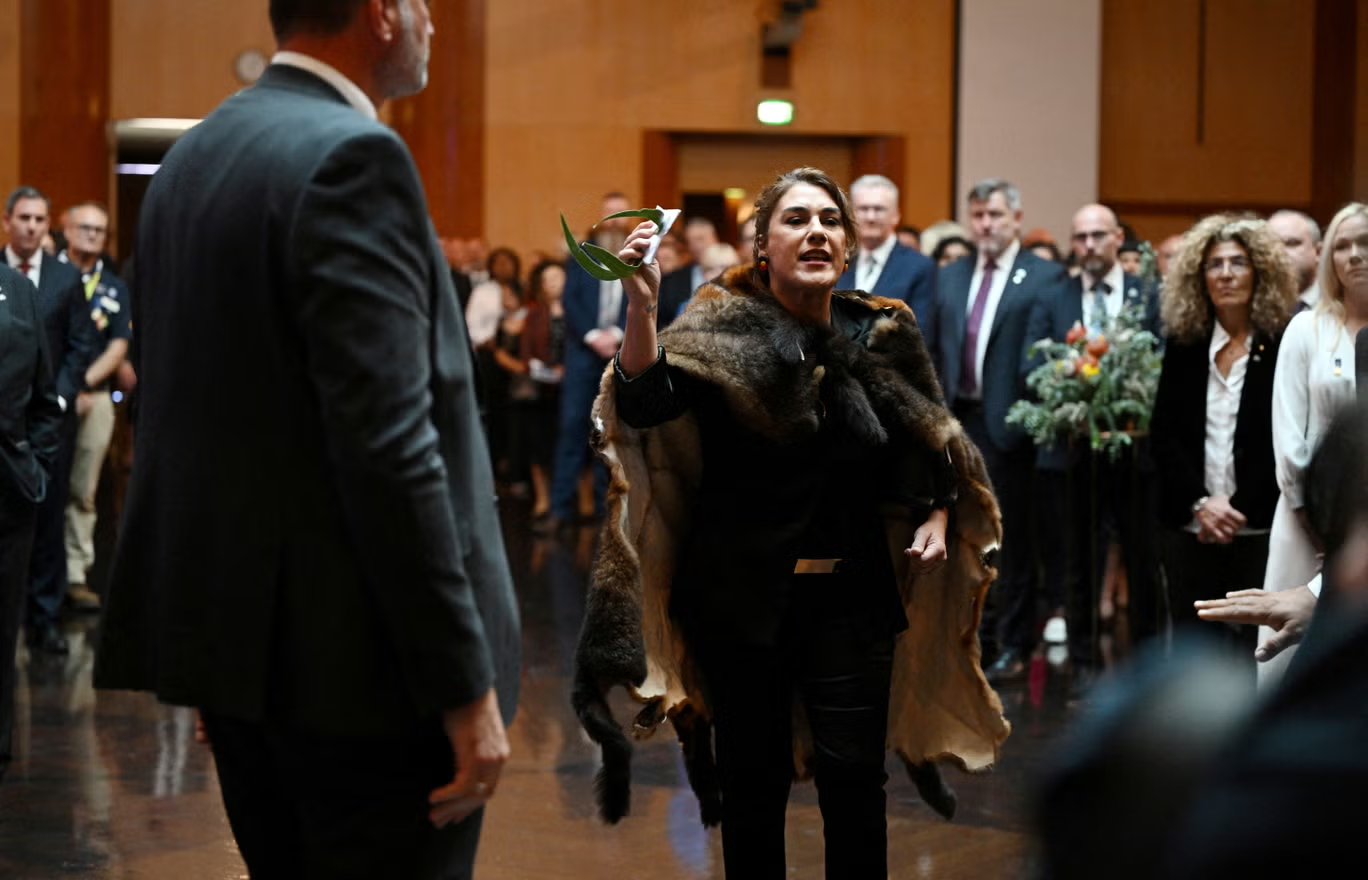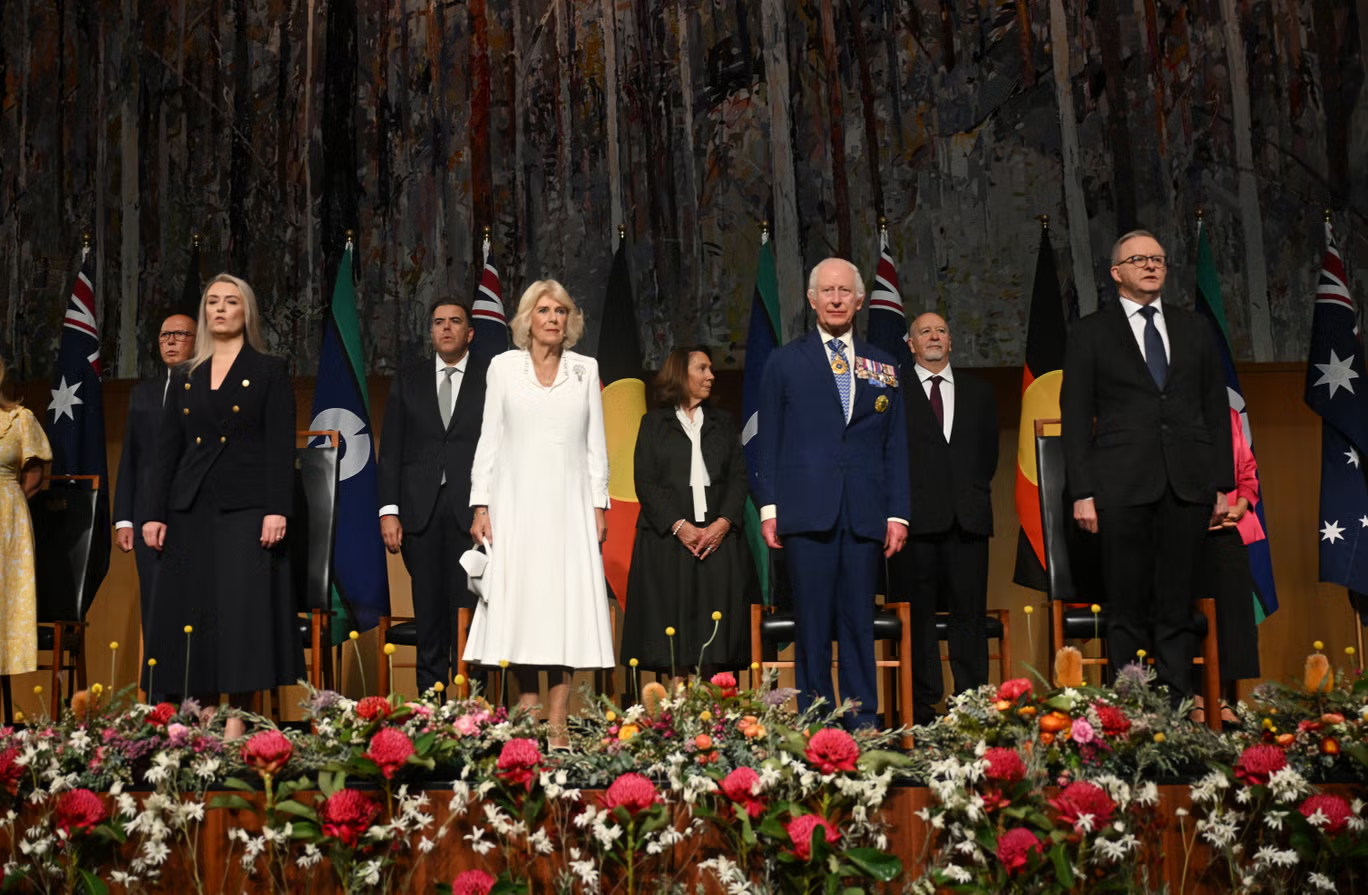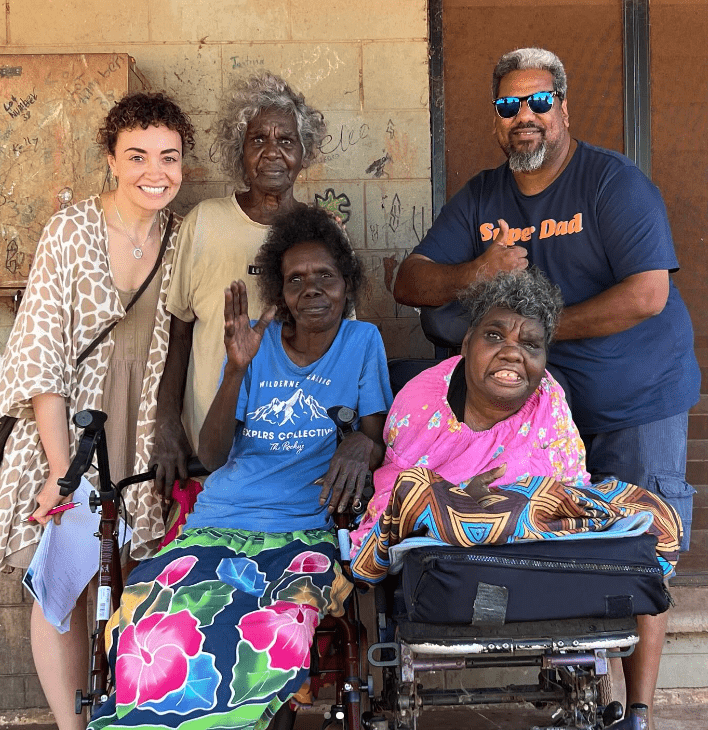In a courageous and defiant act of protest, Independent Senator Lidia Thorpe disrupted a key moment of King Charles III’s visit to Australia, confronting him over the British Crown’s historical and ongoing role in the genocide of First Peoples.
Thorpe, a fierce advocate for Indigenous sovereignty and justice, made her stand during a parliamentary reception in Canberra, where the King addressed members of parliament and dignitaries.
As King Charles concluded his speech, which touched on various subjects including Australia’s climate challenges, Thorpe seized the moment.
Approaching the stage, she yelled with conviction, “This is not your country. You committed genocide against our people. Give us our land back. Give us what you stole from us—our bones, our skulls, our babies, our people.” Thorpe’s words, laden with the weight of centuries of oppression, echoed through the hall.

She continued, calling for a long-overdue treaty between Australia and its First Nations people: “You destroyed our land. Give us a treaty. We want a treaty in this country. You are a genocidalist.”
Despite the efforts of security to silence her and remove her from the room, the senator remained resolute. “This is not your land. You are not my king. You are not our king,” she declared, unflinchingly exposing the painful truths of Australia’s colonial history.
Thorpe,a proud Gunnai, Gunditjmara and Djab Wurrung woman, was eventually escorted from the Great Hall, but her protest had already made an indelible mark.
Here's the moment Lidia Thorpe shouted after King Charles III delivered his speech in Parliament House just after 2pm. She can be heard saying, "This is not your land. You are not my king. You are not our king". #auspol pic.twitter.com/4udHc1ZB9q
— Sarah Basford Canales (@sbasfordcanales) October 21, 2024
Dressed in a traditional possum skin cloak, she continued her vocal resistance even as security led her out, shouting “F*** the colony!”—a rallying cry that reverberated beyond the confines of the parliamentary event.
King Charles, momentarily taken aback, quietly conferred with Prime Minister Anthony Albanese, while Senator Thorpe’s message continued to linger in the minds of those present.
Thorpe’s protest was more than an isolated outburst. Earlier in the day, she had made her intentions clear, releasing a statement advocating for a treaty and calling on Australia to finally address its brutal colonial history.
“As First Peoples, we never ceded our sovereignty over this land,” she wrote.
“The crown invaded this country, has not sought treaty with First Peoples, and committed genocide against our people. King Charles is not the legitimate sovereign of these lands.
“Any move towards a republic must not continue this injustice. Treaty must play a central role in establishing an independent nation.”

This was not the first time Senator Thorpe or her family have challenged the Crown’s complicity in the crimes against First Nations people.
Earlier this month, her uncle, Robert Thorpe, issued a formal notice to the International Criminal Court (ICC), requesting that King Charles be charged and prosecuted for genocide. Senator Thorpe, on this historic day, sought to hand that very notice to the King in person, as a symbolic demand for justice.
Her protest followed a similarly charged event at the Australian War Memorial earlier in the day, where Indigenous Elder Uncle Wayne “Coco” Wharton also attempted to serve the ICC notice to King Charles.
Like Thorpe, he was met with resistance and was ultimately arrested by the AFP for his peaceful action. These acts of defiance are part of a broader movement seeking to hold the Crown accountable for its role in the dispossession, violence, and systematic genocide inflicted upon First Peoples.
“Today, I intended to hand King Charles a notice of complicity in the genocide of the First Peoples of this country,” Thorpe said after the event.
“The truth is, this colony is built on stolen land, stolen wealth, and stolen lives. The British Crown committed heinous crimes against the First Peoples of this country. These crimes include war crimes, crimes against humanity, and failure to prevent genocide. There has been no justice for these crimes. The Crown must be held accountable.”
Thorpe’s words are a battle cry for justice, for an end to the ongoing genocide against First Nations people, and for the establishment of a treaty that recognises Indigenous sovereignty.
“Today, we call for justice, an end to this ongoing genocide, for Treaty and a republic. We want to be able to live in peace and finally come together as a nation,” she declared.

